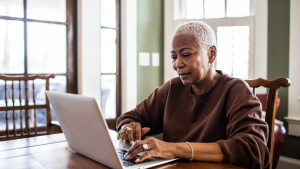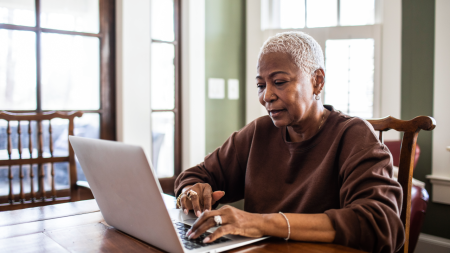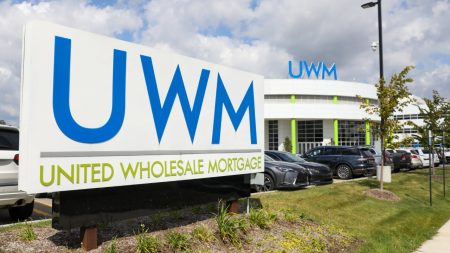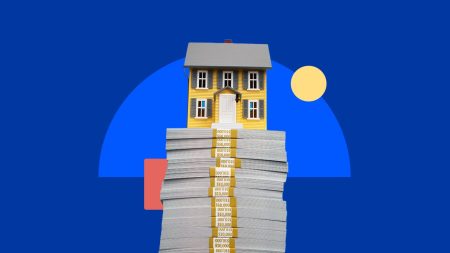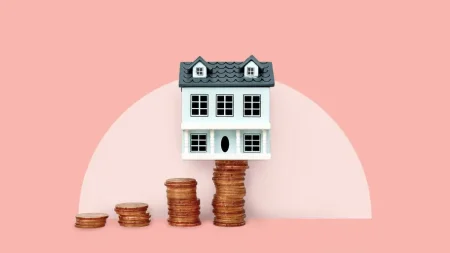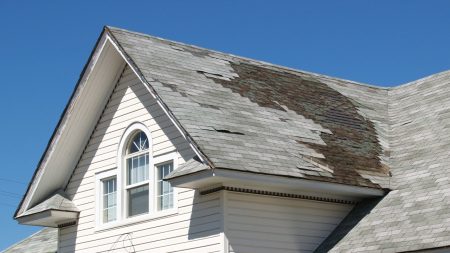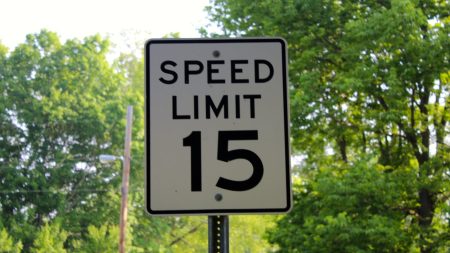Image by MoMo Productions/GettyImages
The stock market — and home prices — keep setting records, and mortgage rates remain north of 6.5 percent. It’s a combination that has many Americans cashing in stock holdings to buy homes.
In fact, the National Association of Realtors (NAR) reports that 31 percent of homebuyers in July paid cash. That number rarely eclipses 30 percent, according to NAR Chief Economist Lawrence Yun.
But even if you’re lucky enough to have investments you could cash out to buy a home, experts typically recommend leaving them in place and taking out a mortgage. Here’s why.
Look for the highest return
Paying cash for a home wasn’t so attractive when mortgage rates were at 3 percent. Most homebuyers understood the value of locking in low-rate money for a long time. However, when mortgage rates passed 7 percent, the calculus changed for some. After all, if you skip the 7-percent mortgage, you’re essentially getting a 7-percent return.
However, stocks return about 10 percent on average, which complicates the calculation.
Companies rarely opt to own real estate free and clear, says Thomas Anderson, author of “The Value of Debt” and founder of FreeFinancialPlan.com. They borrow against their properties and use the money to operate their businesses. But individual homeowners often take a more risk-averse approach.
“A house will appreciate or depreciate the same, regardless if you have a mortgage or not,” Anderson says. “Corporate finance knows to separate this. Personal finance does not.”

Shop smarter for mortgage rates
Bankrate connects you to the latest lender offers, tailored to you. Find your low rate today.
Explore mortgage rates
Staying invested makes long-term sense
In his book “The Value of Debt in Building Wealth,” Anderson spells out the math behind holding onto stocks while paying a mortgage. According to his calculations, a couple who paid only the interest on their mortgage and poured money into retirement savings would have the largest retirement nest egg at 65, even after paying off their mortgage balance. They’d come out ahead of couples who prioritized paying off the mortgage and later saved for retirement or those who prioritized both equally.
Most families choose to pay the principal on their mortgage, but generally speaking, deprioritizing investments rarely pays off. Anderson points out that even in 1980, when mortgage rates were 15 percent or higher, and stocks fell 24 percent, remaining invested was the smart move — because a few years later, mortgage rates fell and stocks surged. Someone who’d pulled out of the market missed out on massive gains in equities.
There are a world of investment choices, and home equity is an illiquid asset.
— Thomas Anderson
Author of “The Value of Debt”
Another factor is that you can’t easily withdraw home equity. “There are a world of investment choices, and home equity is an illiquid asset,” Anderson says.
Weighing your risk tolerance
It’s typically a good move to invest as much as possible — but for most homeowners, the choice between paying off a mortgage and investing, including for retirement, is more of a balance.
So how should you strike that balance? It’s a question of risk tolerance. Are you comfortable with the idea that stocks could decline, perhaps sharply? Or do you prefer the stability of knowing that you own your home free and clear?
Ken H. Johnson, a housing economist and professor of finance at the University of Mississippi, says you should weigh these two statements:
- “You cannot go broke if you do not owe any money. However, the likelihood of becoming wealthy is very small.”
- “Using significant levels of leverage dramatically increases your likelihood of becoming wealthy. However, it also significantly increases the likelihood of going broke.”
If you feel more comfortable with the second statement, you’ll probably prefer to finance your home purchase — even at today’s rates. On the other hand, if you feel more comfortable with the first, you may choose to sell some investments in order to be debt-free, or closer to it, on your home.
Keep in mind that there’s space between these approaches. For example, if you make a 20 percent down payment on a $425,000 home at a 6.6 percent rate of interest, your monthly principal and interest payment will be $2,171. Doubling your down payment would cut that monthly payment by more than $500, and you’ll spend much less upfront than if you paid cash.
There’s no right or wrong answer to how much debt you should carry. If you know that you’ll sleep better with no housing debt, then paying off the mortgage isn’t the worst idea in the world. On the other hand, you can also keep investing rather than paying down the mortgage. After all, mortgage debt is the cheapest money available to most Americans.
Why we ask for feedback
Your feedback helps us improve our content and services. It takes less than a minute to
complete.
Your responses are anonymous and will only be used for improving our website.
Help us improve our content
Read the full article here
